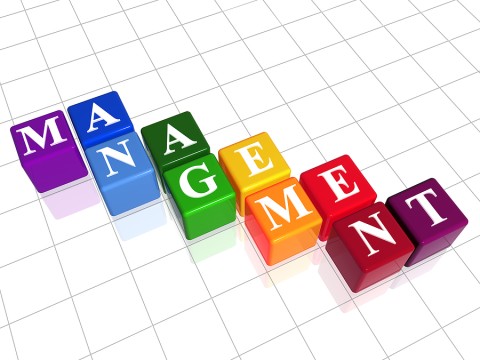By Category
Blog Categories
Preventative Maintenance Accountability
Regular preventive maintenance and service of virtually every make and model of medical equipment is extremely important for a host of reasons. That includes the top manufacturers like Steris, Medivators (Cantel), ASP/J&J, Olympus and Custom Ultrasonics. And yet in busy medical offices across the nation, thinking about the service schedule and maintenance of medical equipment is rarely at the forefront of attention as there's just so many things that must be paid attention to. Considering the consequences of equipment malfunction or it being inoperable, it makes good sense to have a regular maintenance plan in place to avoid these pitfalls as well as a person assigned to oversee it.
The topic of this article will focus mainly on the pros and cons of having an assigned person to make sure these maintenance tasks are performed. That person might be called a "Maintenance Manager".
The idea is to have someone to oversee your equipment maintenance making sure nothing falls between the cracks of being busy. This strategy may pay off in a big way. This responsibility would probably not be the persons only job depending on how big your medical practice is, but the time necessary to fulfill these added tasks would be outlined and accounted for so that they have the time to dedicate to make this sure preventive maintenance is executed in a timely manner.
A specific maintenance schedule could be outlined for each piece of equipment. And the maintenance manager would oversee the schedule making appointments, phone calls and interacting with service technicians and manufacturers like Steris or Medivators / Cantel.
Risk Management
This role might come under "Risk Management" as risk management is obviously a hot topic in medical offices. Rightfully so, as keeping patients safe is of the upmost importance. By having a specific maintenance manager, interactions, research and communications with experts would make that manager extremely familiar with your equipment over time. This simple fact might increase the odds that the required preventive maintenance would keep it all in good in good working order. At some point they might even get to the point that they themselves may be able to identify potential issues before they become critical in some cases reducing risk a great deal.
Accountability
Accountability is another benefit of assigning a Preventative Maintenance Manager. The Maintenance Manager becomes responsible for ensuring that maintenance tasks are performed according to the established protocols and schedules. And if there were any issue, you would have a specific point of contact to find out exactly what happened. And if they don't know why, they'll know who to contact to find out.
Compliance
There's also Compliance Standards" to consider. Adherence to regulatory standards while complying with safety guidelines is critical. Because those standards are sometimes updated or refined, the users of those devices may be unaware of the changes which may increase risks for your practice and patients. A maintenance manager can receive all updates on equipment compliance standards and keep up to date with the latest requirements keeping you out of trouble and your equipment running great.
Record Keeping
Record Keeping is another extremely important detail that often gets overlooked if there isn't a Maintenance Manager in place. Documenting and recording of maintenance performed and preventive maintenance parts and kits purchased is extremely valuable for audits, regulatory inspections and keeping complete histories of the performance of the equipment you utilize. When it comes time for maintenance, repairs or replacement of equipment, these records could help you immensely in troubleshooting or making wise decisions with regards to repairs or to make the decision that a replacement is needed.
Cost Benefit
While assigning a Maintenance Manager is an cost/investment, that investment may be less than you think as cost savings may outweigh the cost of the hours spent by your Maintenance Manager. Having your equipment serviced regularly has proven in most cases to extend the lifespan of medical equipment which is a huge savings in the long run. But the exponential savings may be by avoiding or minimizing the downtime that inoperable equipment ensues.
Downtime affects every person in your office along with the patients who depend on your care and the services enabled by having your equipment in good working order. If your equipment is inoperable your income drops, your employee cost remains in place and most importantly this situation may create questions in your patient's minds with regard to your reputation. When considering the "All-in" costs of not having a maintenance manager or a great maintenance plan in place, it's easy to see it's typically not that big of an investment when considering everything that could happen.
Expertise
Another benefit to having a maintenance manager is training and expertise. Having a specific person overseeing maintenance gives you the opportunity to utilize the training resources that many manufacturers like Steris, Cantel and others offer. The goal may not be to have the manager doing repairs, but just to understand what's needed as training would help them understand the intricacies and potential issues of the medical equipment in your office.
The Bottom Line
The bottom line is that if you were to assign a specific person as a preventative maintenance manager it would enhance accountability, compliance and overall efficiency. These three improvements could contribute and further enhance the overall reliability and safety of your medical equipment ultimately benefitting the patient care you offer and the smooth operation of your healthcare facility.


